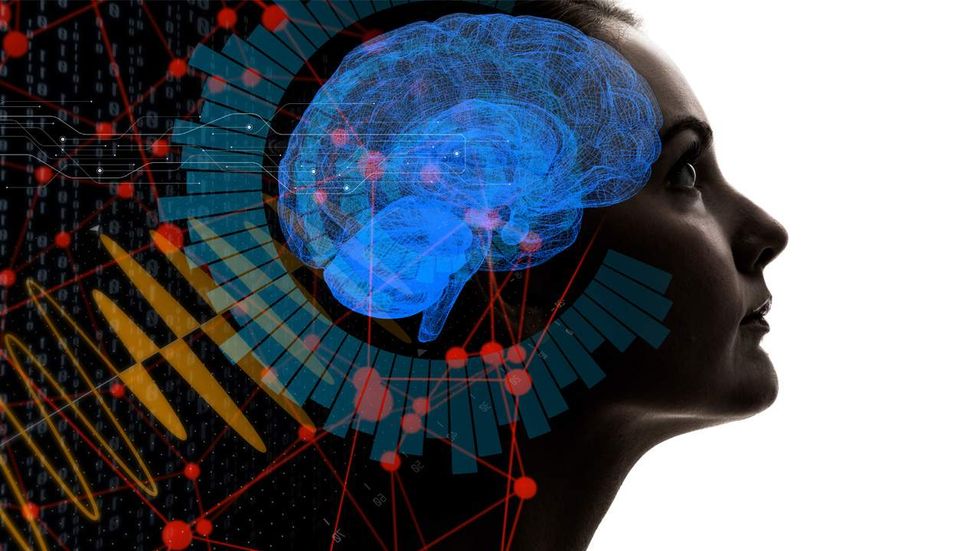
Bryan Johnson, founder of Kernel, wants to use brain chips to improve intelligence or regulate emotions in people. He said brain chip technology is still under development, but should be ready in about 15 years. (chombosan/Getty Images)

Bryan Johnson, founder and CEO of Kernel, a neuroscience company, wants to give people brain chips. He says the chips can improve intelligence or regulate emotions in people, resulting in an overall improvement in our lives. But critics say the technology could give outside forces an incredible amount of control over our brains.
The technical term for a brain chip is “neuroprosthetics,” also known as a "brain augmentation." In addition to making us smarter, the chips could improve brain function for people suffering from symptoms caused by a stroke or Alzheimer’s Disease, for example, Johnson says. The 40-year-old also believes brain chips can improve human behavior.
Generally, brain chips work by mimicking how brain cells communicate with each other. The Washington Post explains:
Let’s say, for example, that you are having a conversation with your boss. A healthy brain will convert that conversation from short-term memory to long-term memory by firing off a set of electrical signals. The signals fire in a specific code that is unique to each person and is a bit like a software command.
Brain disease causes the signals to misfire or not function. The chips would serve as a bridge to keep the brain properly functioning.
Chips could alter signals to cause other changes in the brain as well.
Johnson told The Guardian about some of the possibilities: “Can I increase my rate of learning, scope of imagination, and ability to love? Can I understand what it’s like to live in a 10-dimensional reality? Can we ameliorate or cure neurological disease and dysfunction?”
Altering human behavior is another possibility.
"I decided that if the root problems of humanity begin in the human mind, let’s change our minds," he said.
Johnson says his motivation is a desire to reduce human suffering. He previously struggled with depression and watched some of his relatives deal with Alzhiemer's and drug addiction.
“I spent a decade being tortured in my own mind,” he told The Guardian. “I have witnessed and experienced what happens when a brain isn’t at its best. Being able to treat Alzheimer’s disease went from ‘that’d be nice’ to ‘really important’ after my stepfather began showing early symptoms. Helping people overcome addiction went from ‘that’d be nice’ to ‘really important’ after my father suffered from drug addiction for the first 25 years of my life.”
Brain chip technology is still under development, but should be ready in about 15 years, according to Johnson.
At present, Johnson is working with outside investors to help build his company. Public interest and neuroscience has increased in the last few years and is likely to continue, Johnson said. He did not tell The Guardian how much money he is seeking to raise.
Johnson, who has a strong track record as an entrepreneur, just might make it happen. At age 30, he founded Braintree, an online payment company he later sold to PayPal for $800 million, according to The Guardian. He used $100 million of the money to start Kernel in 2016, and the business now has more than 30 employees.
The notion of putting chips in people's brains brings up safety, ethics and privacy concerns.
In a paper for Boston University, called “Ethical Assessment of Implantable Brain Chips,” researchers Ellen M. McGee and G. Q. Maguire, Jr. wrote:
Ethical appraisal of implantable computer chips should assess at least the following areas of concern: issues of safety and informed consent, issues of manufacturing and scientific responsibility, anxieties about the psychological impacts of enhancing human nature, worries about possible usage in children, and most troublesome, issues of privacy and autonomy. As is the case in evaluation of any future technology, it is unlikely that we can reliably predict all effects. Nevertheless, the potential for harm must be considered.
McGee and Maguire point out many advantages of brain chips. But they also point out that giving someone else total control of your brain is rife with possibilities for abuse.
“The most frightening implication of this technology is the grave possibility that it would facilitate totalitarian control of humans,” they wrote.